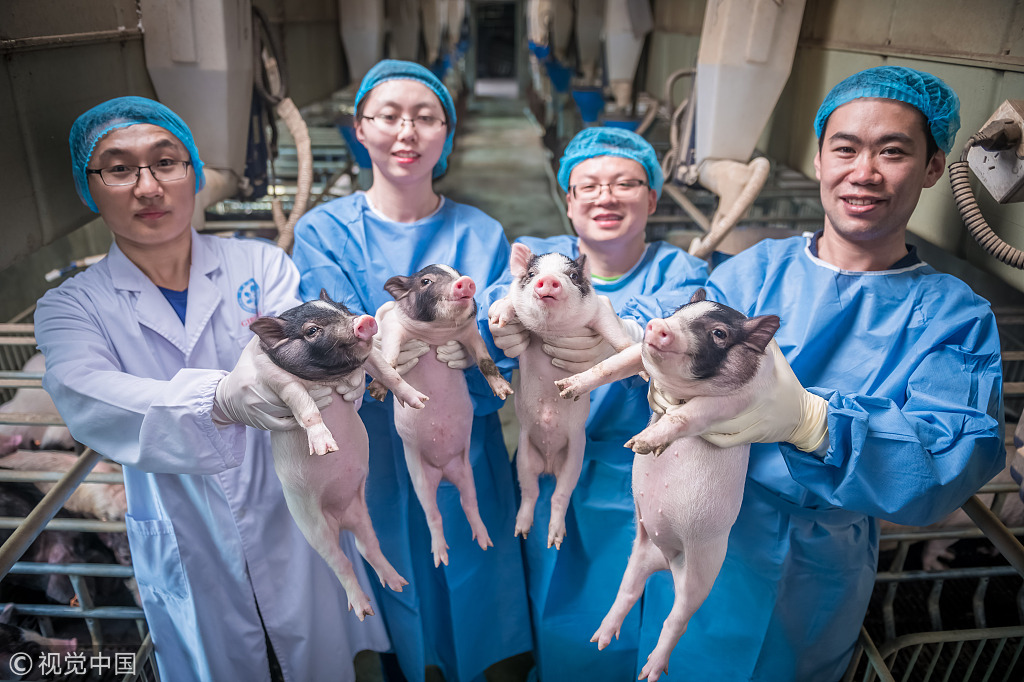Chinese scientists create pig model of Huntington's disease


A team of Chinese scientists has established a pig model of Huntington's disease (HD) using gene-editing technology, bringing science an important step closer to curing neurodegenerative diseases.
The research was published on Cell on Friday. Researchers used the CRISPR/Cas9 gene editing technique to introduce a segment of the human gene that causes HD into pig fibroblast cells. Then somatic cell nuclear transfer generated pig embryos carrying this genetic alteration.
In comparison with widely-used genetically modified mice, the pig HD model has an edge in modeling neurodegenerative diseases because it more closely matches the symptoms of the human disease, said co-senior author Li Shihua, a professor of human genetics at the Emory University School of Medicine.


















